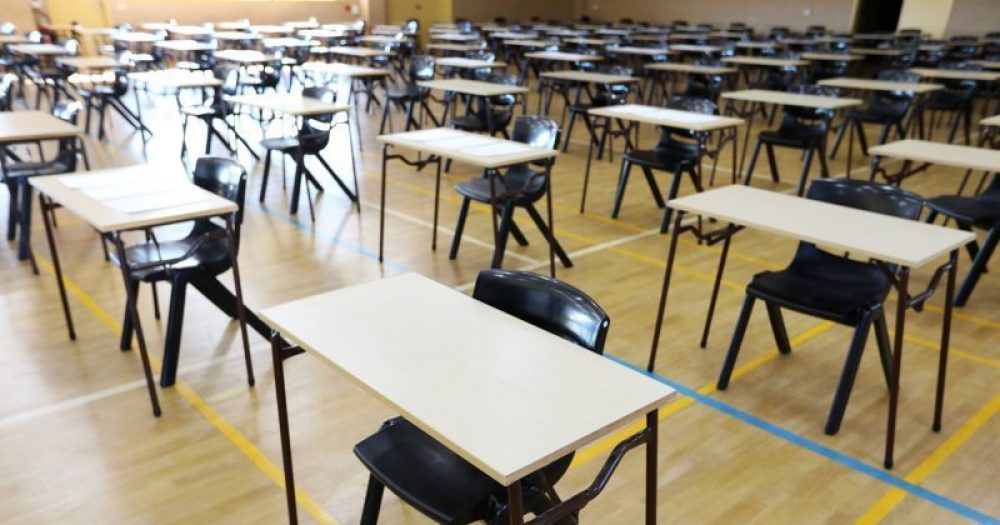There is plenty of inspiration to draw on worldwide if we seek to reform our assessment system – as we surely must now do, writes Olly Newton
As we all know too well by now, the announcement of another drawn-out lockdown is terrible news for our mental health, and especially that of young people. The impact is clear. In a survey of 2,000 young people by the mental health charity, YoungMinds last year, 80 per cent of respondents said the pandemic had made their mental health worse.
It’s easy to blame this crisis on the pandemic. Online learning, exam cancellations and mutant algorithms certainly haven’t helped, but the truth is that young people’s mental health was suffering long before Covid. The pressures of education, and in particular our assessment system, have played no small part in it. By and large, all our assessments are concerned with is students’ knowledge recall, with far too little focus on the skills they are developing.
Sadly, though exams are cancelled for the second year running, the government is still chasing after a replacement system that will adequately compare with it and make the transition back to the status quo as smooth as possible. This government paralysis on meaningful reform means the impetus has fallen on the shoulders of the wider education sector. It’s that, or stand on the sidelines as all the opportunities made evident by the crisis are wasted.
Young people’s mental health was suffering long before Covid
There is appetite for it, too. But is there an appetite for this right now? At the end of 2020, Edge partnered with YouGov to poll over 1,000 teachers. It found overwhelming support for changes to the assessment system, much of it on mental health grounds: 90 per cent agreed that young people find the exam system increasingly stressful, while 77 per cent agreed that assessment solely through exams is damaging to young people’s wellbeing and confidence. And 89 per cent agreed that now is the right time to rethink assessment. For the sake of young people’s mental health, it is clear that we have a duty to reform the system.
Present assessment methods largely ignore important employability and life skills such as communication, teamworking and creative problem-solving. Practical and applied learning are completely overlooked. Parents and teachers know it. Pupils know it. Even employers do. For some time already, firms like PwC, KPMG and EY have been using their own strength-based evaluations to fill the assessment gap where conventional methods are lacking.
A reformed assessment system must move away from our current obsession with exam results and standardised testing. This is neither new nor specific to us, and there is plenty of inspiration to draw on worldwide.
In complete contrast with our culture of ‘teaching to the test’, the New York Performance Standards Consortium, a coalition of schools in the US, has done away with standardised testing completely. Instead, their approach focuses on in-depth literacy, mathematical problem-solving and application of the scientific method. It incorporates social studies and other related topics. Crucially, assessment evolves out of the curriculum and classroom discussion, actively encouraging students to shape their own evaluation.
Animas High School in Colorado carries out assessment in the form of digital portfolios. Students create their own website, which showcases their academic work, as well as their personal, career and study goals. A sort of CV for the digital age, this encourages young people to actively consider how (and where) they might apply their knowledge post-education. Once complete, the portfolios can be used to apply to university or for internships.
Even at home, alternative assessment methods already exist; it’s simply that they’re not well utilised. The International Baccalaureate goes well beyond assessing academic skills. It aims to develop knowledgeable, inquiring thinkers who are principled, balanced and reflective. The Extended Project Qualification (EPQ) – equivalent to 50 per cent of an A-level, in use in many sixth-forms and valued by universities – incorporates essays, project work, presentations and self-directed learning.
Only a year ago, the idea of overhauling assessment would have sent even the most well-intentioned reformers packing. But the uncertain future reformers warned of is now our children’s present. In light of everything we’ve lived through, the challenge feels all the more urgent, but also eminently more achievable.








Your thoughts